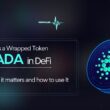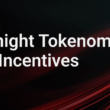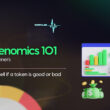Cardano has made significant progress in the past year, with the Vasil Hard Fork Combinator event laying the groundwork for developing more sophisticated dApps on the platform.
However, to fully realize the potential of Cardano and attract more developers to the platform, it is necessary to provide developer-friendly tools that make it easier to build on Cardano.
This article explores projects which aim to make building on Cardano an easy and seamless developer experience.
Development on Cardano: The Status Quo
The ongoing fight for developer talent is a challenge faced not just in the corporate and web2 world, but also affects the web3 development ecosystems.
One of the reasons for this shortage is the programming language used in web3 development. The main programming languages include Solidity for smart contracts on Ethereum, C++, and Go for cryptocurrencies and protocols, and Python and Rust, which are known for their readability and a large number of libraries.
For Cardano, the native smart contract language is Plutus, a specialized language used only for the development of smart contracts. Although not as popular as Solidity, there is a growing community of developers using Plutus to build dApps and providing tools and resources for its development.
The unique nature of Plutus presents challenges in onboarding new developers to Cardano, requiring good documentation and resources, especially for those without prior knowledge of functional programming languages like Haskell or ML.
To ensure the smooth and scalable development of new innovative projects on Cardano, accessible documentation, easy-to-use tooling, and open-source code are necessary.
Despite the challenges, Cardano boasts a vibrant ecosystem and was ranked as the top crypto protocol by development activity in 2022.
But the question remains: how can we maintain and attract more developer talent and make the onboarding process easier?
Let’s find out 👇
Challenges and Barriers to Developing Cardano
Developing on Cardano can be challenging for a variety of reasons.
The lack of documentation and onboarding materials
The lack of documentation and onboarding materials for new developers has been a major issue. Many developers have reported difficulty in understanding how to set up their development environment and use all the CLIs, tools, and services.
There is also a lack of simple examples and baby-step tutorials, as well as a lack of good documentation and guides for beginners. Documentation and guides can make it much easier to get started with other blockchain platforms like Ethereum, Solana, Cosmos, and Algorand.
High entry barriers to Cardano development
Another issue is the complexity and high entry barriers of Cardano development. Many developers have reported that it can be painful to get started and use, with a steep learning curve and a lack of structured learning programs.
The Plutus Pioneer Program, while helpful for some, has also been reported to be time-consuming and difficult to complete in order to write useful code.
The lack of adequate tools hinders the development of Cardano
Developing on Cardano can be a challenging experience due to a lack of adequate tooling. This can make it difficult for developers to get started with Cardano and create projects on the platform. There is also a lack of standardized, trusted tooling options, which can create uncertainty for developers looking to build on the platform.
But this situation is changing rapidly. Many projects are tackling these challenges with the goal to ease and smoothen the development journey on Cardano. Can 2023 become the developer onboarding year for Cardano?
Easing the developer journey: 5 Cardano projects are leading the way
1. GimbaLabs: an API and CSK Platform
GimbaLabs aims to support the Cardano community by providing resources and tools for learning about and building on the platform.
This includes offering developer training, live coding sessions, mini-projects, and open-source tools such as Cardano APIs and Cardano Starter Kits (CSK).
The platform’s APIs serve as an entry point for developers, offering open and free interfaces for new adopters to explore ideas and launch proofs of concept for new projects.
The CSKs offered by GimbaLabs are open-source, Project Based Learning (PBL) opportunities that allow users to engage with the Cardano platform in the real world and learn through experience what it can do.
The GimbaLabs platform serves as a central source of information for these resources. It provides start-ups, Catalyst proposal teams, and institutions with the tools and support they need to build on Cardano.
2. Streamlining Cardano Development with Mesh
Mesh is a software development toolkit that aims to make it easier for developers to build WEB3 applications on the Cardano blockchain.
It includes a starter kit, documentation, guides, and an open-source library with various components that developers can use to build their projects.
Mesh aims to improve the developer experience by providing a starter kit, comprehensive documentation, and guides and tutorials to help developers get started and navigate the process of building on Cardano. If you want to know more about Mesh check out this article.
3. Demeter: The All-In-One Cardano Developer Platform
Demeter is a software development platform that aims to make it easy for developers to build decentralized applications (dApps) on the Cardano blockchain.
It provides a range of tools and resources for developers, including a browser-based Visual Studio Code (VSCode) development environment called Workspaces, fully-synced Cardano nodes, and access to real-time and historical blockchain data through DB Sync.
Demeter also offers a range of Starter Kits, which are open-source code repositories contributed by the community that can be used as learning resources or as a starting point for projects. In addition to these tools and resources, Demeter also offers a platform for developers to share their APIs and Cardano Starter Kits (CSKs) with the community.
4. Typescrip Smart Contracts for Cardano
The plu-ts project aims to make it easier for developers to create smart contracts on the Cardano blockchain by implementing the Untyped Plutus Core specification in Typescript.
This will allow for more flexibility in the creation of parametrized smart contracts and Plutus Application Backends, and will also provide developers with testable code, inline documentation, and useful debugging features. By creating this tool, the plu-ts project hopes to foster a wider community of developers building on the Cardano platform.
If you want to learn more about this project, check out this article.
5. Aiken: A New Smart Contract Language for Cardano
Aiken is a new programming language and toolchain for developing smart contracts on the Cardano. Aiken aims at delivering high-quality tools for writing Cardano smart contracts.
The team behind Aiken aims to reverse engineer the Plutus core and build Rust implementations with the same features as Haskell. The end goal is to make writing smart contracts easy and safe, with a complete and delightful developer experience. If you want to know more about Aiken check out this article.
Where to start?
Thank you for reading so far! So, I assume you must have an interest in building in Cardano. But where should you start? Here are some useful links that help you gettin’ started:
- Check out this article by Blocksplained digging one level deeper into the projects: https://adapulse.tempurl.host/navigating-the-cardano-development-landscape-what-are-the-options-developer-diary-2/
- Here is a website that collects relevant developer resources to start building on Cardano:https://buildingoncardano.dev/
- Official Cardano Developer Website: https://developers.cardano.org/docs/get-started/
Conclusion
In conclusion, Cardano has made significant progress in the past year with the Vasil Hard Fork Combinator event, but to fully realize its potential, it needs to make it easier for developers to build on the platform. Currently, there are several challenges facing the development of Cardano, including the lack of documentation, high entry barriers, and inadequate tools. However, projects like GimbaLabs, Mesh, Demeter, and others aim to streamline the developer journey and make building on Cardano a seamless experience. 2023 is expected to be the year of developer onboarding for Cardano.










